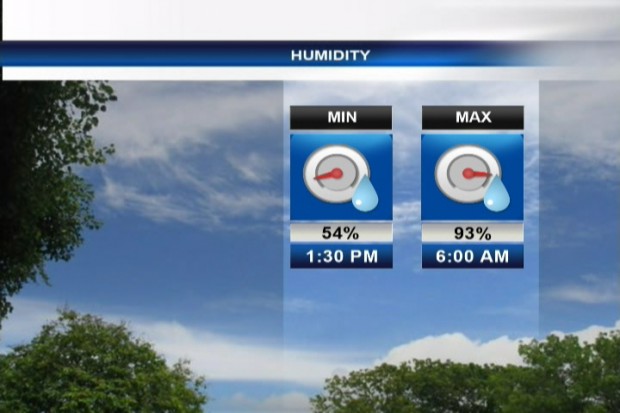Home > Blog > Weather
Humidity: Why does it matter?

We often hear weather reporters talk about humidity, but what is it?
Meteorologist Chris Perez of PAGASA explains that humidity is the amount of moisture in the air. If the humidity is high, the atmosphere is saturated. Therefore, thunderstorms and rain showers are likely to be experienced.
When humidity is high, which ranges between 70 to 100%, we may experience the following:
Sticky feeling
Warm air holds more moisture, and because the air is saturated, our sweat does not evaporate, and instead, sticks to our skin. This way, we feel hot and sticky because we are deprived of sweat evaporation, which is our body’s cooling mechanism.
That’s why we feel cooler during the northeast monsoon or amihan season, which falls on October to February. During this time of year, the wind is dry and cold; therefore, relative humidity is low. The sweat that comes out from our bodies easily evaporates, cooling us down.
Curly hair goes wild.
High humidity can be disastrous to curly hair. Excessive amounts of water in the air may cause curly hair to look less shiny and frizzier. Hair may even swell and stretch, and may be prone to breakage.
But effects may vary, depending on your curl pattern. As hair absorbs water vapor, your tresses are more hydrated. And if it’s not too overwhelmingly humid, curly hair may look more defined and bouncy.
Attack of diseases
While dry air may lead to dry skin, as well as irritated sinuses and throats, warm and moist air may lead to the proliferation of molds, viruses, fungi, bacteria and dust-mites. So make sure you conduct your regular home cleaning as these humidity-friendly elements may trigger or aggravate respiratory ailments.
Asthma attacks
When relative humidity and temperatures soar, breathing can be difficult, especially for those with asthma cases. According to the American Journal of Respiratory and Critical Care Medicine, breathing in extremely hot air at around 48 degrees Celsius may trigger asthma attacks.
Hot or humid—which is which?
These two terms, though both beginning with the letter H, are not interchangeable. While heat refers to the temperature, humidity refers to the amount of moisture or water vapor in the air.
Though extreme humidity may lead to discomfort, a planet without humidity would not be inhabitable by humans. There would be no clouds, thunderstorms and even fog.
So before going out, make sure to check the daily humidity and temperature. Being exposed to high humidity and temperatures makes us prone to heat-related illness such as dehydration, heat stroke and heat exhaustion. On these days, it’s best to stay indoors.


